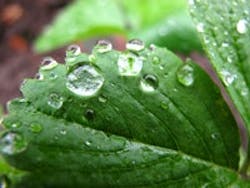EPA Awards 35 Environmental Education Grants
The U.S. Environmental Protection Agency (EPA) announced the completion of the latest round of awards under the Environmental Education (EE) Grants Program.
Projects include a community-based program to study Monarch butterflies, a watershed and stream monitoring teacher training program, a classroom-based simulation of the United Nations Climate Summit, and a mobile laboratory. Additional projects include school-based, after-school and non-formal EE programs focusing on a range of environmental issues, from air quality to recycling.
The agency funded 35 grants from across the country, ranging from $40,000 to $192,200, for a total of approximately $3.3 million.
Grant recipients include organizations in 24 states as well as from Puerto Rico and the District of Columbia. States include: Alabama, California, Colorado, Georgia, Hawaii, Idaho, Indiana, Iowa, Louisiana, Maine, Massachusetts, Missouri, Nebraska, Nevada, New Mexico, New York, Oregon, Pennsylvania, Tennessee, Texas, Utah, Vermont, Washington and Wisconsin.
Since 1992, EPA has distributed between $2 million and $3.5 million in grant funding per year, for a total of approximately $65.5 million supporting more than 3,600 grant projects.
This year, EPA distributed two types of grants under the EE Grants Program. Projects awarded under the Model Grants Request for Proposals (RFP) are intended to serve as model, replicable projects; each project will be implemented in at least two states. Local Grant awards fund locally focused EE projects. EPA anticipates issuing a new RFP for Local Grants in the winter of 2015-2016.
The grantees were selected from more than 400 applications received in February and March of this year. This longstanding, highly competitive grants program supports EE projects that increase public awareness about environmental issues and provide participants with the skills to take responsible actions to protect the environment. The program provides financial support for projects that design, demonstrate, and/or disseminate environmental education practices, methods or techniques.
Source: U.S. EPA
